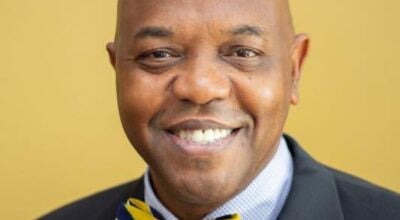Losing a legend
Published 8:03 pm Wednesday, October 5, 2011
The nation, especially those who were involved in the civil rights movement first-hand, mourned the death of Rev. Fred L. Shuttlesworth Wednesday.
Shuttlesworth, who was bombed, beaten and repeatedly arrested in the fight for civil rights and hailed by the Rev. Martin Luther King Jr. for his courage and energy, died at the age of 89 at Princeton Baptist Medical Center in Birmingham.
Selma resident and District 23 Sen. Hank Sanders, who worked with Shuttlesworth on many occasions, said he was saddened by the loss.
“He profoundly affected the movement, first because of his commitment and second, because of his courage,” he said. “His courage was what people called ‘raw courage’ because it was just there and infused in everything he did.”
The courage Sanders described was a necessity for Shuttlesworth to have endured the process. He survived a 1956 bombing, an assault during a 1957 demonstration, chest injuries when Birmingham authorities turned fire hoses on demonstrators in 1963, and countless arrests.
“I went to jail 30 or 40 times, not for fighting or stealing or drugs,” Shuttlesworth told grade school students in 1997. “I went to jail for a good thing, trying to make a difference.”
President Barack Obama said one of his fondest memories of Shuttlesworth occurred in Selma.
I will never forget having the opportunity several years ago to push Reverend Shuttlesworth in his wheelchair across the Edmund Pettus Bridge — a symbol of the sacrifices that he and so many others made in the name of equality.”
Shuttlesworth, a former truck driver who studied religion at night, became pastor of Bethel Baptist Church in Birmingham, in 1953 and soon was an outspoken leader in the fight for racial equality.
“He had a profound belief that he was destined to work and lead and do these things,” Sanders said. “He became a symbol. When people’s courage began to falter, somebody would mention Rev. Shuttlesworth and he just became a powerful example through the things he did.”
In his 1963 book “Why We Can’t Wait,” King called Shuttlesworth “one of the nation’s the most courageous freedom fighters … a wiry, energetic and indomitable man.” He visited frequently and remained active in the movement in Alabama even after moving in 1961 to Cincinnati, where he was a pastor for most of the next 47 years. He moved back to Birmingham in February 2008 for rehabilitation after a mild stroke. That summer, the once-segregated city honored him with a four-day tribute and named its airport after him; his statue stands outside the Birmingham Civil Rights Institute.
And in November 2008, Shuttlesworth watched from a hospital bed as Sen. Barack Obama was elected the nation’s first African-American president. The year before, Obama had pushed Shuttlesworth’s wheelchair across the Edmund Pettus Bridge in Selma during a commemoration of the Selma-to-Montgomery voting rights march.
Shuttlesworth also gained attention in Diane McWhorter’s book “Carry Me Home: Birmingham, Alabama: The Climactic Battle of the Civil Rights Revolution,” which won a Pulitzer Prize in 2002.
Shuttlesworth was born March 18, 1922, near Montgomery and grew up in Birmingham.
As a child, he knew he would either be a minister or a doctor and by 1943, he decided to enter the ministry. He began taking theological courses at night while working as a truck driver and cement worker during the day. He was licensed to preach in 1944 and ordained in 1948. Throughout the fight for voting rights, Sanders said no one stood taller than Shuttlesworth.
“I think I can safely say there was not another person in the movement that had more commitment and more courage than Rev. Shuttlesworth,” he said. “That’s saying a lot, because a lot of people had commitment and courage.”
– The Associated Press contributed to this story.





